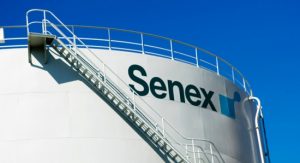
15 November 2018
When it comes to measuring the financial risk of climate change, not much has changed for oil and gas company Senex over the past three years. In 2016 its auditors declared they did not consider climate risk as a financial risk. In 2017 the board still hadn’t heard of the G20 Task Force for Climate Related Financial Disclosures – a groundbreaking global framework for measuring the risk climate change poses to businesses’ bottom lines.
Their annual general meeting in Brisbane today was much the same.
Senex Energy’s latest annual report is also unclear about who, if anyone, in the company is responsible for assessing climate risk. What is clear is that Senex has not:
- stress-tested what the company looks like under different global warming scenarios
- set any emissions reductions targets
- considered whether climate change risk will damage its bottom line.
Just this week Fatih Birol, the executive director of the International Energy Agency, told the Guardian: “We have no room to build anything that emits CO2 emissions.”
This means all fossil fuels – coal, oil and gas. So if we want to stay in a habitable climate, Senex would have to limit extraction from its existing oil and gas reserves and definitely would not be able to search for more fossil fuel reserves – leading to stranded asset risk.
Next year Senex plans on spending AUD $135-155 million for the Atlas and Roma North natural gas development programs in the Surat Basin, and on oil exploration and development drilling in the Cooper Basin in South Queensland.
With this in mind, a shareholder asked whether Senex “stress tests major strategic and capital expenditure decisions on these projects against different climate change scenarios before making a final investment decision?”
No, it does not replied chairman Trevor Bourne. “Other than the government introducing a carbon tax in that period, which will become a tax on users so not so much on producers, you’ve only got to look at the inability of the government both state and federal in any sort of clear policy. We are working on the basis that we will make these investments,” he said.
Buck passing
Another shareholder asked whether the company follows the global Paris Agreement goal to keep warming below 2ºC, or the Australian 2030 target which could lead to 3ºC of warming.
Trevor Bourne admitted Senex doesn’t follow either target, and was scathing about the Australian government’s lack of commitment in this area.
“We don’t operate our company on either. Whether it is 2% or 3% [2ºC or 3ºC] that is a bigger issue for the government to address. If they get off their backside and do something about it, it would make our investment decisions much clearer.”
This is interesting coming from a company that belongs to lobby groups such as the Australian Petroleum Production & Exploration Association (APPEA). Recent research by think tank Influence Map revealed that the APPEA spent millions of dollars last year trying to block action on climate change policies.
Take action
Does your superannuation fund have investments in fossil fuel companies like Senex? Find out here and tell your super fund it must stop putting your money into dirty fossil fuels.
A lot of buck passing from Senex Energy’s AGM. When asked what target Senex follows to reduce global warming, Paris or the 2030 target, Chair Trevor Bourne said “we don’t operate our company on either,” blaming the government for not having a clear policy https://t.co/Ig8khF6Yq4
— Market Forces (@market_forces) November 16, 2018
